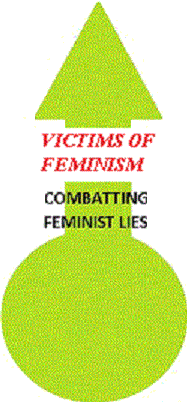Home > Issues > Humanities & Natural & Social Sciences> Feminist Dumbism in Cherry (1995) |
||||||||||

|
Empowering Men:fighting feminist lies |
|||||||||
Feminist Dumbism in Cherry (1995)© Peter Zohrab 2007 |
||||||||||
Home > Issues > Humanities & Natural & Social Sciences> Feminist Dumbism in Cherry (1995) |
||||||||||

|
Empowering Men:fighting feminist lies |
|||||||||
Feminist Dumbism in Cherry (1995)© Peter Zohrab 2007 |
||||||||||
“examines 196 scholarly investigations: 153 empirical studies and 43 reviews and/or analyses, which demonstrate that women are as physically aggressive, or more aggressive, than men in their relationships with their spouses or male partners.“
“Using conservative estimates, (this thesis) suggests women receive 35 to 51 times more headline coverage than men. This is inconsistent with statistics reporting that men and women are victimized at roughly equal rates (traditionally finding that men are victimized more).”
| |
|||||||||
|
|||||||||
Top |